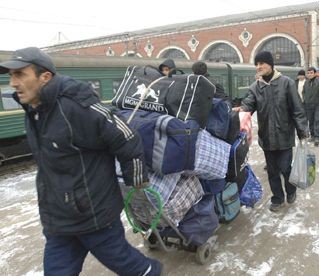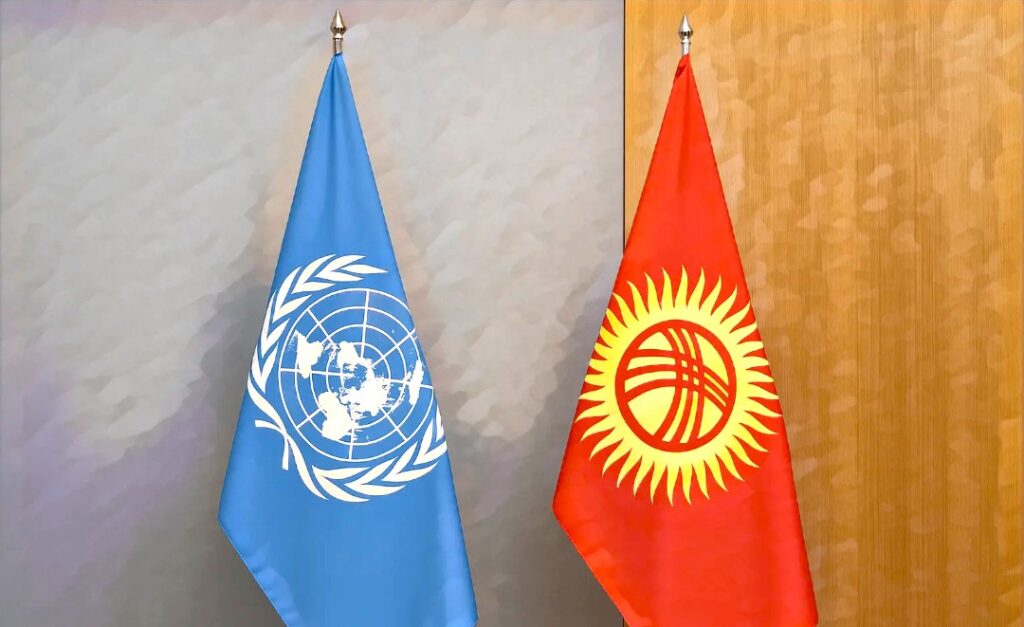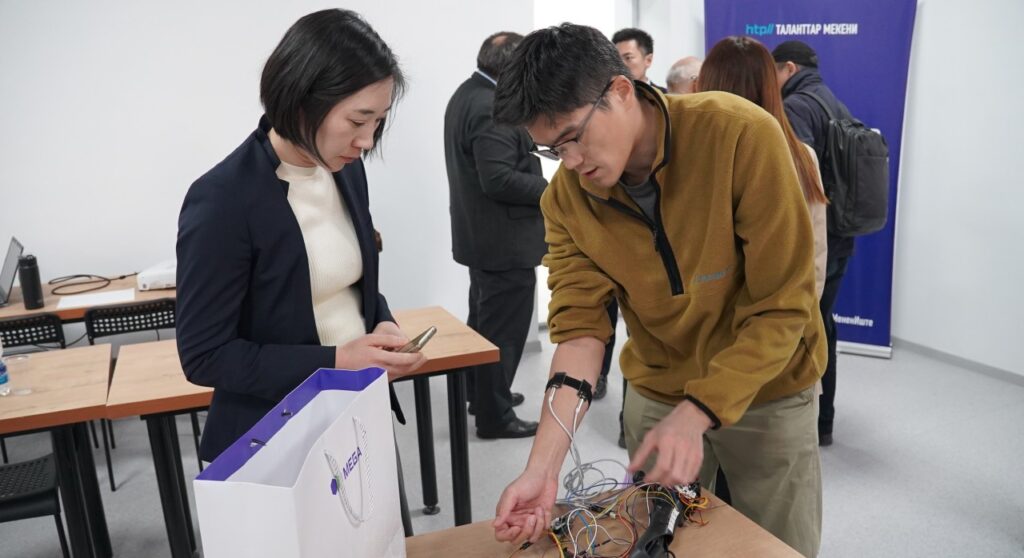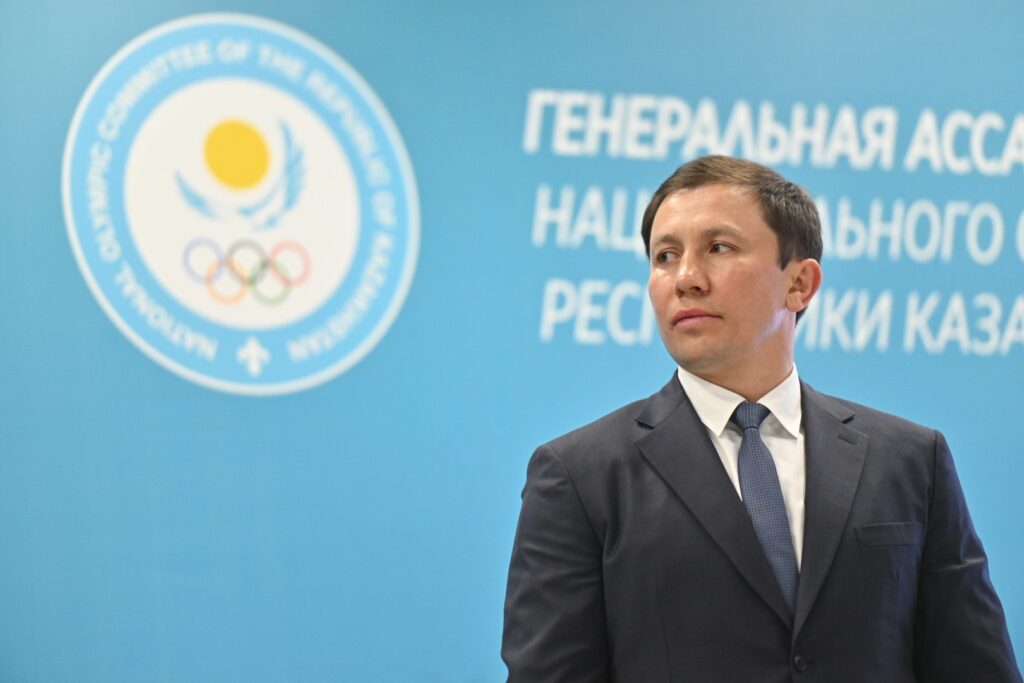BISHKEK (TCA) — Remittances from Kyrgyz labor migrants abroad decreased by 37 percent in 2015 compared with 2014, Kyrgyzstan’s National Bank said. In 2014, labor migrants sent home $2.17 billion and only $1.41 billion for 9 months of 2015.
Low wages and high unemployment at home force Kyrgyzstan’s citizens to seek jobs abroad. Labor migrants support their low-income families with remittances.
According to the Kyrgyz State Service for Migration, there were 700 thousand labor migrants at the end of 2015, and 520 thousand of them worked in Russia, 113 thousand in Kazakhstan, 14 thousand in South Korea, 10 thousand in Turkey, and 30 thousand in European countries, USA and the Middle East.
Labor migrants are mainly young people aged 18-29 (49%), of which 83% are men and 17% women, as well as citizens from 30 to 59 years old (35%).
The average monthly salary of Kyrgyz migrants abroad is from $250 to $400. Migrant workers spend part of the money earned to pay for accommodation, food and clothing. The average remittance of a migrant per month is $170.
EEU preferences
After entering the Eurasian Economic Union last year, Kyrgyz citizens enjoy more preferences in Russia than Uzbeks and Tajiks, who are the main competitors of Kyrgyz workers. They earn higher wages than their competitors. According to official data, the number of Kyrgyz migrants has increased in Russia while the number of migrants from Uzbekistan and Tajikistan has reduced.
According to the Russian Federal Migration Service, there are more than 3.21 million citizens of Kyrgyzstan, Tajikistan and Uzbekistan in Russia. Citizens of Kyrgyzstan, unlike their neighbors in the region, after joining the EEU were more likely to leave for Russia in search of job. Over the past month, their number has increased by two percent and reached 553.9 thousand people, while the number of migrant workers from Tajikistan has decreased by 3.8 percent and amounted to 862.3 thousand people. The number of Uzbeks has dropped by 4.1 percent and was 1.8 million.
Joining the EEU facilitated procedures for residence and employment in the other EEU member countries. According to the agreement between Kyrgyzstan and Russia, the period of stay of Kyrgyzstan’s citizens in Russia without registration was increased from 7 to 30 days, and time of their stay depends on the term of labor contracts. They also do not need to obtain a work permit.
At the same time Russia has tighten the rules for migrant workers from non-EEU countries. From January 2015, Russia has introduced for them strict visa regulations, including higher fees and admission tests. Russian authorities deported many migrants and added them to the blacklist which bans those named from returning to the country for a certain period.
According to Foreign Affairs journal, “Thus, the Russian authorities want to force the Central Asian countries to join the Eurasian Economic Union, because they are very dependent on the money that migrants send home.”
Corruption
There is some activity in migration policy at the legislative level in Kyrgyzstan, but in practice the problems of Kyrgyz citizens abroad are not solved.
A center to support migrants was recently opened in Russia and citizens from various countries have visited it except for those from Kyrgyzstan, who prefer to solve their problems through the diaspora leaders.
Corruption in Kyrgyzstan has changed the thinking of its citizens, so they believe that all issues should be solved unofficially and with money, experts said.
Diaspora leaders are not interested that migrants work legally, as it will deprive them of financial support. According to the existing system, labor migrants are forced to share the earned money with diaspora leaders who in turn pay bribes to local authorities.
Every year, about 50 thousand Kyrgyz citizens leave Kyrgyzstan for a long term. Return of these people in the future remains a big question. According to the Labor Ministry, about 56 thousand of migrants’ children live in Kyrgyzstan with their grandparents and other relatives without proper guardianship. There were cases of child abuse in such families.









